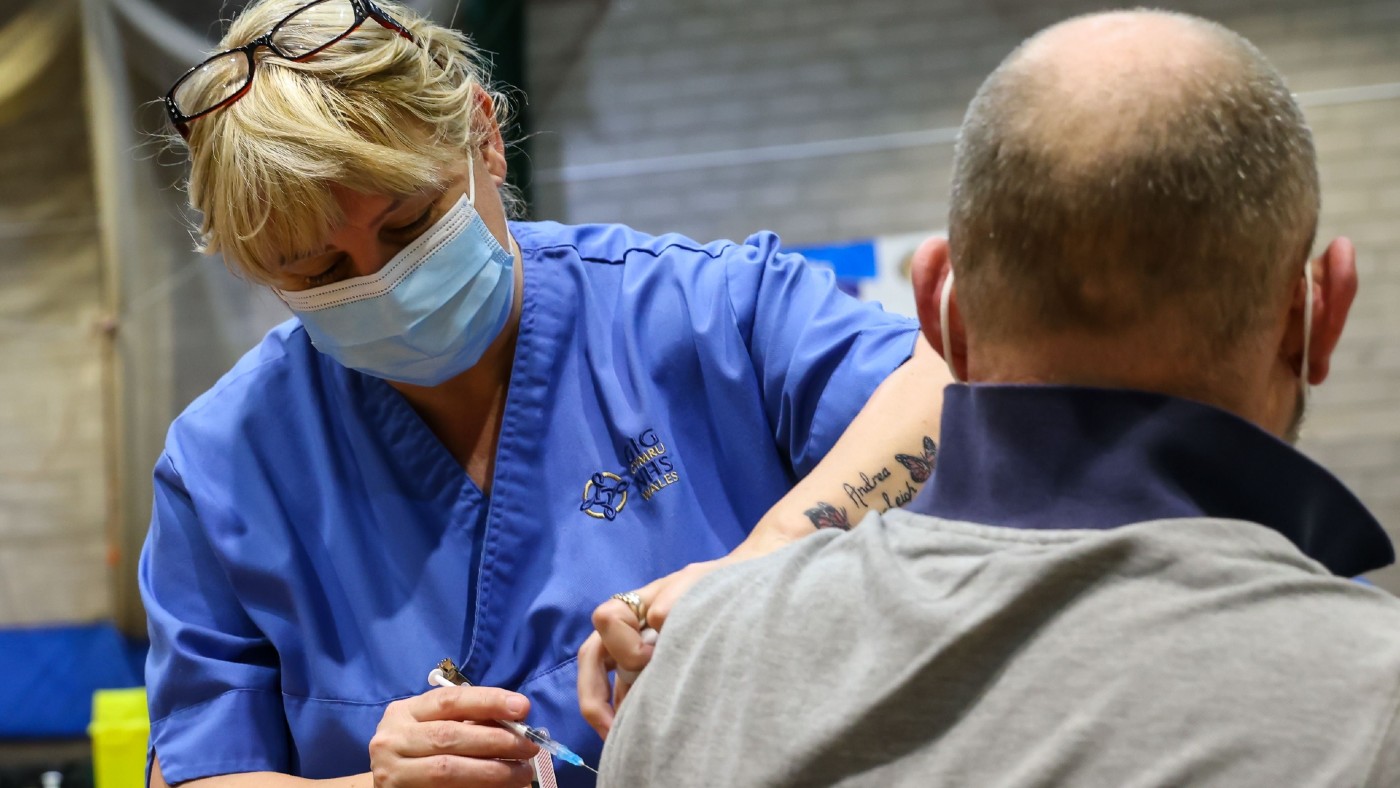Covid vaccines and the ‘nocebo’ response: many side effects ‘not caused by jab’
New study points finger at other explanations for common complaints such as headaches

A free daily email with the biggest news stories of the day – and the best features from TheWeek.com
You are now subscribed
Your newsletter sign-up was successful
The majority of adverse effects linked to Covid vaccines are actually down to a phenomenon called the “nocebo effect”, a newly published study suggests.
Described by The Independent as a “negative version of the placebo effect”, the nocebo response is when people report experiencing unpleasant side effects after receiving a “treatment with no pharmacological therapeutic benefit”. And the new research found that factors including “anxiety, expectation and misattributing various ailments” such as headaches and fatigue are behind more than two-thirds of the common side effects blamed on Covid-19 vaccines, said The Guardian.
The study, published in the Jama Network Open journal, was based on data from 12 placebo-controlled clinical trials of Covid vaccines involving a total of more than 45,000 people.
The Week
Escape your echo chamber. Get the facts behind the news, plus analysis from multiple perspectives.

Sign up for The Week's Free Newsletters
From our morning news briefing to a weekly Good News Newsletter, get the best of The Week delivered directly to your inbox.
From our morning news briefing to a weekly Good News Newsletter, get the best of The Week delivered directly to your inbox.
Although “significantly” more side effects were reported by trial participants who received a real vaccine, nearly a third of the placebo recipients also reported at least one adverse side effect, according to the researchers, from Beth Israel Deaconess Medical Center (BIDMC) in Boston, Massachusetts.
After the first injection, 35% of the 22,578 placebo recipients experienced symptoms that affected their entire body, such as a fever, while 16% reported a “local adverse event”, such as pain in the arm where the injection was administered, redness or swelling.
By comparison, 46% of the 22,802 people who received real vaccines experienced symptoms that affected their entire body after the first jab, and two-thirds reported at least one local event.
But “while this group received the actual vaccine active treatment, researchers said that at least some of their reported side effects are attributable to the nocebo effect, given that many of these same effects also occurred in the placebo group”, The Independent reported.
A free daily email with the biggest news stories of the day – and the best features from TheWeek.com
The scientists’ analysis suggested that the nocebo effect accounted for 76% of all common adverse side effects after the first dose, and nearly a quarter of all reported local adverse events.
After the second dose, reported side effects fell to 32% in the placebo group, with 12% experiencing local events. However, side effect complaints rose to 61% in the other group, with 73% reporting local adverse events.
“Researchers suspect the higher rate of adverse events in the vaccine group the first time may have led participants to anticipate more the second time,” said the newspaper.
Study co-author Ted J. Kaptchuk said that the listing in vaccine information leaflets of “non specific” and “particularly nocebo sensitive” symptoms such headaches and fatigue could help explain why people reported those side effects after receiving the jabs.
“Evidence suggests that this sort of information may cause people to misattribute common daily background sensations as arising from the vaccine or cause anxiety and worry that make people hyper alert to bodily feelings about adverse events,” added Kaptchuk, a programme director at the Harvard Medical School-affiliated BIDMC teaching hospital.
Fellow co-author Julia W. Haas said that since concern about potential side effects is believed to be a significant factor in vaccine hesitancy, analysis of nocebo responses was “important for Covid-19 vaccination worldwide”.